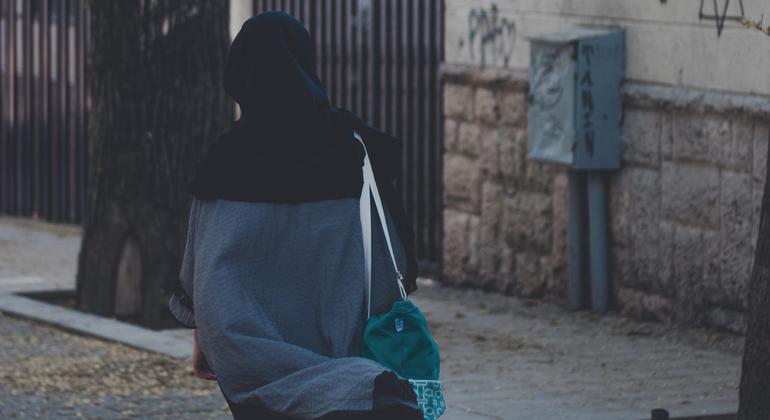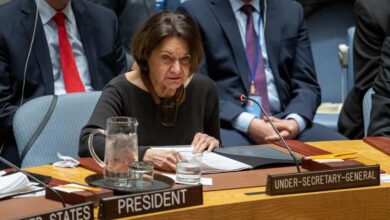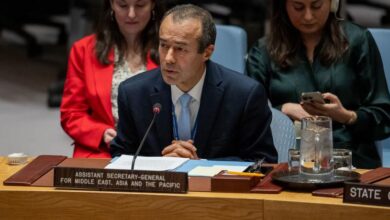Iran: UN experts call for repeal of strict new hijab law


The UN is independent Human Rights Council-appointed experts said in a statement that it represents a fundamental attack on women’s rights.
The law, which applies to children as young as 12 years old, combines harsh criminal penalties with mandatory citizen supervision and systematic enforcement across all sectors of society, experts added. .
the Law for the Protection of the Family through the Promotion of Chastity and the Headscarf Culturerepresents what experts describe as “increased State control over women’s bodies in Iran and further attacks on women’s rights and freedoms”.
Existing restrictions
The new law expands existing restrictions, targeting women and girls who do not wear the hijab in both physical and online spaces. While hijab requirements are already mandatory under Iran’s Islamic Penal Code, this new law introduces significantly harsher consequences.
Violations can now result in prison sentences of up to 15 years and significantly increased fines. What worries human rights experts most is the provision that allows judges to impose the death penalty on charges of “corruption on earth.”
Systematic impact on Iranian society
The scope of the law goes far beyond individual enforcement, independent experts say, embedding principles of mandatory face coverings and a “culture of chastity” deep into Iranian society.
Education programs, training programs and public information campaigns must now incorporate these concepts, effectively creating a state-sanctioned value system that experts warn will severely restrict freedom of speech and belief.
“This law constitutes a clear violation of fundamental human rights, legal norms and principles, including women’s rights to equality, freedom of expression, religion and belief, freedom of bodily autonomy, freedom, security and privacy,” experts emphasized.
‘Atmosphere of fear’
Additionally, the law enforcement approach has transformed ordinary citizens into agents of the State. The law requires individuals, families and businesses to report disclosures and requires widespread use of technology for enforcement purposes.
“These requirements will create a climate of fear and distrust among individuals and communities.,” experts warn, noting that harsh economic penalties will likely affect vulnerable groups and populations including children, adolescents and social media users .
Long-term consequences
Experts say enforcement is likely to increase violence against women and girls and increase systematic gender-based discrimination.
Harsh punishments coupled with citizen surveillance and institutional enforcement create what they describe as comprehensive system of gender-based repression.
“We call on the Government of Iran to immediately repeal the Hijab and Chasity Law and all other discriminatory laws that perpetuate gender-based oppression,” the experts said, confirming that they are in contact with the Government on the issue.
The Special Rapporteur and other independent human rights experts are not employees of the United Nations, do not receive a salary for their work, and have no connection with any government. They serve in their individual capacities.




